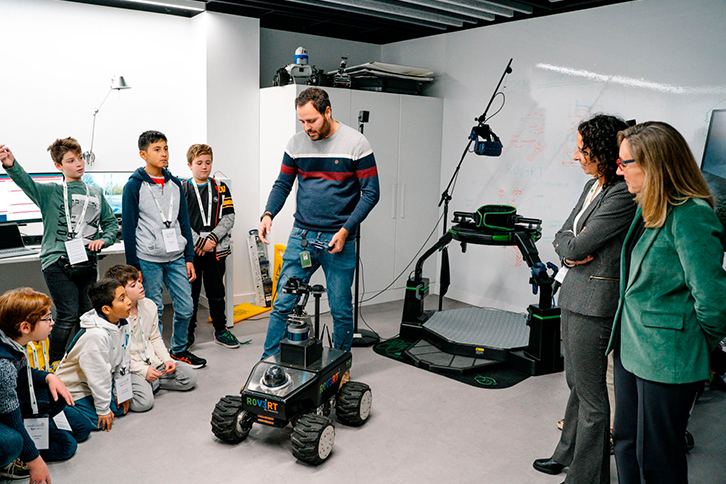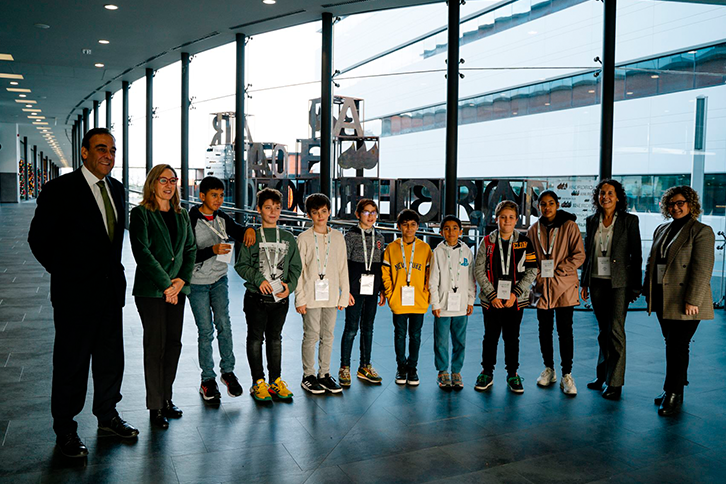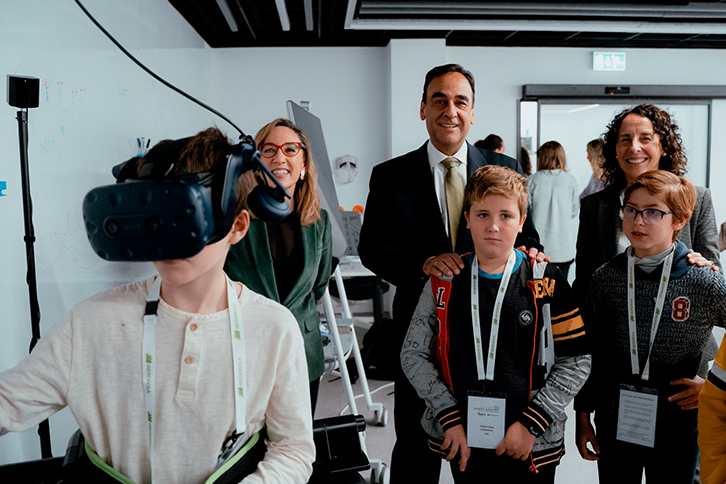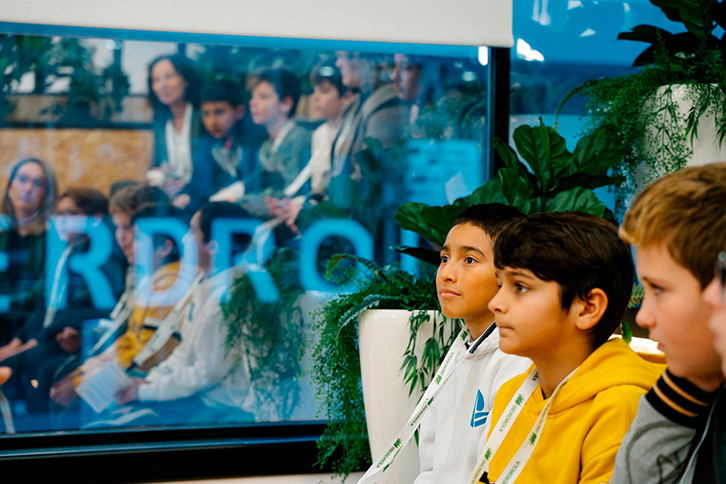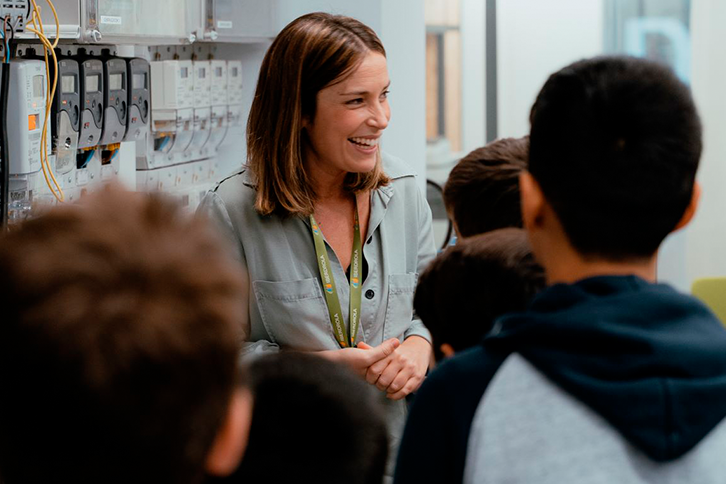News
2022-12-27 12:00:00.0Schoolchildren of Innobasque's FIRST LEGO League Euskadi learn how smart grids work at the Iberdrola Hub
- They are part of the STEAM Education programme of the Basque Innovation Agency, Innobasque, and participate in the Kidegune programme of the Bilbao City Council.
- Under the slogan, 'The electricity grid becomes smart', the children - aged between 10 and 11 - were able to get to know Iberdrola's Global Smart Grids Innovation Hub in Larraskitu.
Under the slogan, "The electricity grid becomes smart", a group of children - aged between 10 and 11 - participating in the Kidegune programme in Basurto, developed by the Bilbao City Council, had the opportunity today to learn about Iberdrola's Global Smart Grids Innovation Hub, located in Bilbao. This learning session, given by i-DE Redes Eléctricas Inteligentes (distributor of the Iberdrola Group) and organised by the Basque Innovation Agency, Innobasque, is part of the FIRST LEGO League Euskadi training programme, a pioneer in Spain, and has allowed the participants to learn first-hand about the ecosystem of this centre, which is dedicated to the coordination of projects to promote innovation in smart grids.
During the visit, guided by Noemí Alonso, director of the centre, the students were accompanied by the general director of the Basque Innovation Agency, Innobasque, Leire Bilbao; the councillor for Youth and Sport of Bilbao City Council, Itxaso Erroteta; and the director of the Northern Region of i-DE, of the Iberdrola Group, Javier Arriola.
This session is part of a comprehensive training programme organised by Innobasque as part of the FIRST LEGO League Euskadi, in which more than 2,100 students - 60% more than last year - and 15 companies, universities, technology centres and institutions are taking part, to help participating teams and students in general to find out what is being done in the Basque Country in the field of energy, the challenge of this edition, and thus prepare their challenge for the final.
The Hub is directly related to the challenge that the participants in this year's FIRST LEGO League are facing: energy. Today's visit is a great opportunity to inspire the schoolchildren to create the innovative projects that they will present at the FIRST LEGO League Euskadi final on 4 March. Organised by the Basque Innovation Agency, Innobasque, together with the University of Deusto, Fomento de San Sebastián and Mondragon Unibertsitatea, FIRST LEGO League Euskadi is the benchmark STEAM education programme in the Basque Country that encourages young people's interest in science and technology.
According to Javier Arriola, i-DE's Northern Region Director, "the Hub was born with the philosophy of being an innovation hub to create the electricity grids of the future based on the collaboration of companies, institutions, universities....and the future lies precisely in the hands of these students who will lead their use and implementation", and he added, "to awaken this interest and generate this talent from an early age, we believe it is very important to bring them closer to them empirically, to explain the technology used, and for them to learn and experience how it works on a real scale, and the Iberdrola Hub is the perfect place for this".
Iberdrola is one of the companies promoting this knowledge, together with Arteche, BCAM - Basque Center for Applied Mathematics, Bilbao Kirolak - Bilbao City Council, Bilbao Portlab, CIC energiGUNE, Energy Cluster, EPowerLabs, Ente Vasco de la Energía - EVE, Fomento de San Sebastián, Mondragon Unibertsitatea, Ormazabal, Tecnalia, University of Deusto and UPV/EHU.
The experience of visiting the Hub
The Innovation Hub has different laboratories in which to test and speed up developments. Thus, the students have had access to a laboratory for digital energy meters which, unlike analogue meters, allow remote collection of household consumption data, facilitate the detection of faults and, in short, make it possible to offer a better customer service and promote more efficient consumption.
Another of the laboratories that the students visited was aimed at applying new technologies in the field of prevention. The laboratory has a virtual reality station that allows operators to carry out training or measurements of substations without having to go to a potentially dangerous place. At the centre is the R0V3RT robot, equipped with various visual, thermal and auditory sensors, capable of performing daily inspections of substations and reporting any anomalies.
The students also had access to the Hub Campus, consisting of different workshops and open to students and professionals, which is designed to accelerate collaboration and innovation in order to attract talent.







